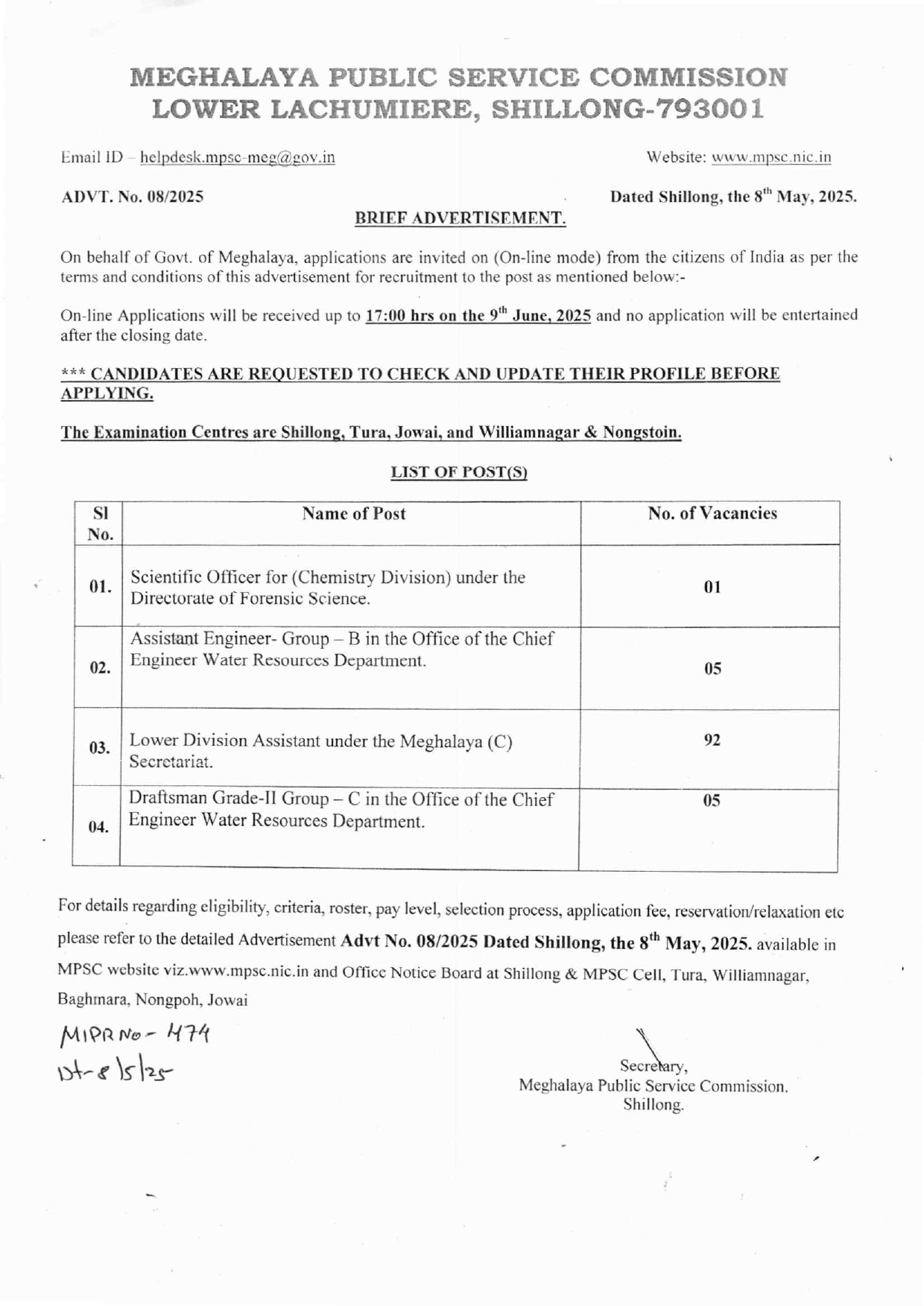[By Shri. O.R. Shallam, Panaliar, Jowai.]
The recent controversy surrounding the Director General of Police (DGP) of Meghalaya and the alleged misuse of high-priced vehicles for official purposes has once again cast a spotlight on the pervasive issue of misuse of government resources by officials. This incident has not only drawn public ire but has also highlighted a growing trend among government officials—irrespective of their rank and designation—of using luxurious vehicles beyond their pay grades and the government’s prescribed guidelines.
The core of this issue lies in the blatant disregard for government provisions and guidelines. It is disheartening to observe that while many developmental projects that could benefit the public are stalled or underfunded, some officials seem to be prioritizing their comfort and status over their duties. The misuse of official vehicles extends beyond necessary official travel. Observations indicate that these official vehicles are often used for personal errands, including dropping and picking up children from school, shopping trips, and even family outings.
This misuse is not just a breach of protocol but an ethical lapse that undermines public trust. Standard government vehicles are meant to serve the public by ensuring officials can perform their duties efficiently and effectively. However, the reality is starkly different. The vehicles used by these officials often far exceed the rates approved by the government. This practice is rampant among various ranks, from politicians to district officers.
The extravagance is not just limited to the choice of vehicles but also extends to the purposes they are used for. The sight of government vehicles at shopping malls, schools entrance, gym parlor, private functions, and even leisure spots has become increasingly common. Such behavior reflects poorly on the integrity of public service and sets a negative precedent.
In light of these developments, it is a wakeup call for the government to strictly enforce existing guidelines regarding the use of official vehicles. Regular audits and checks should be conducted to ensure compliance. Officials should be required to log their use of government vehicles. These logs should be reviewed periodically to identify any misuse. There should be clear penalties for those found misusing government vehicles. This could include fines, suspension, or other disciplinary actions.
The culture of entitlement and misuse of public resources must be curtailed to restore faith in public institutions. It is high time for a wake-up call for the government to monitor and control such acts by its employees. Public service is a privilege that comes with the responsibility of serving the community with integrity and accountability. In conclusion, while it is essential for officials to have the necessary resources to perform their duties effectively, there must be a balance. Luxurious lifestyles funded by public money are not only unjust but also erode the very foundation of public trust. It is incumbent upon responsible citizens to stay informed and vigilant. By seeking the truth and facts behind these incidents, the public can hold their officials accountable. Transparency and accountability are cornerstones of a functional democracy, and it is only through collective effort that such misuse of public resources can be curtailed; it is our duty to demand transparency and accountability from our leaders, ensuring that the resources meant for public welfare are used judiciously and for their intended purposes.

